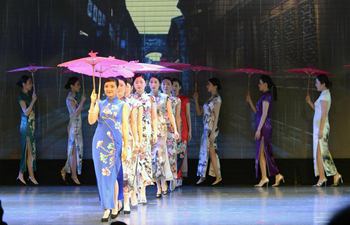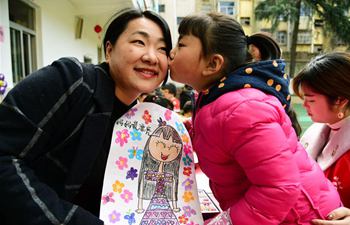GENEVA, March 7 (Xinhua) -- The outgoing chairman of the World Trade Organization's (WTO) General Council Xavier Carim of South Africa on Wednesday quoted a Nelson Mandela speech made 20 years ago when Mandela said rules must be just.
Carim handed his baton to the newly-elected chairman Junichi Ihara of Japan after new members were elected to the body that oversees the regular work of the WTO.
The South African WTO ambassador noted that many of the issues raised by Mandela at the time of his speech continue to resonate now regarding global trade issues.
His speech came in the same week that WTO director-general Roberto Azevedo called on the 164 members of the organization to avoid triggering an escalation in trade barriers after threats made by U.S. President Donald Trump and his derision of the world trade body's adjudicating body.
Carim noted Mandela had said: "Rules must be applied...but if they contain prescriptions that cannot be complied with by all, or if the results benefit too few, then injustice will emerge."
"Then it is prudent to remember that no amount of rules, or their enforcement, will defeat those who struggle with justice on their side."
Carim noted late President Mandela was of course drawing on his own experience of South Africa's struggle for freedom, but that elements of the speech have a bearing on the WTO's work.
He said the WTO's work is not immune to the growing concerns about the impact of globalization, trade, and trade agreements on job security, inequality, and development.
He noted that such concerns had been raised by many developing countries in the past, "but the fact that similar concerns are now more strongly voiced by citizens across developed countries is a significant new development and manifests in ways that deeply affect our work."
"In our organization, where decisions are taken by consensus, ongoing and practical expressions of the principles of transparency and inclusivity are a baseline for a fairer, more inclusive and developmental multilateralism," said Carim.
At a minimum, he said inclusivity requires that WTO processes and decisions fully consider the views of members from the different geographic regions, at different levels of development, but the decisions and processes should also fully engage with the competing policy perspectives and priorities of WTO members.















